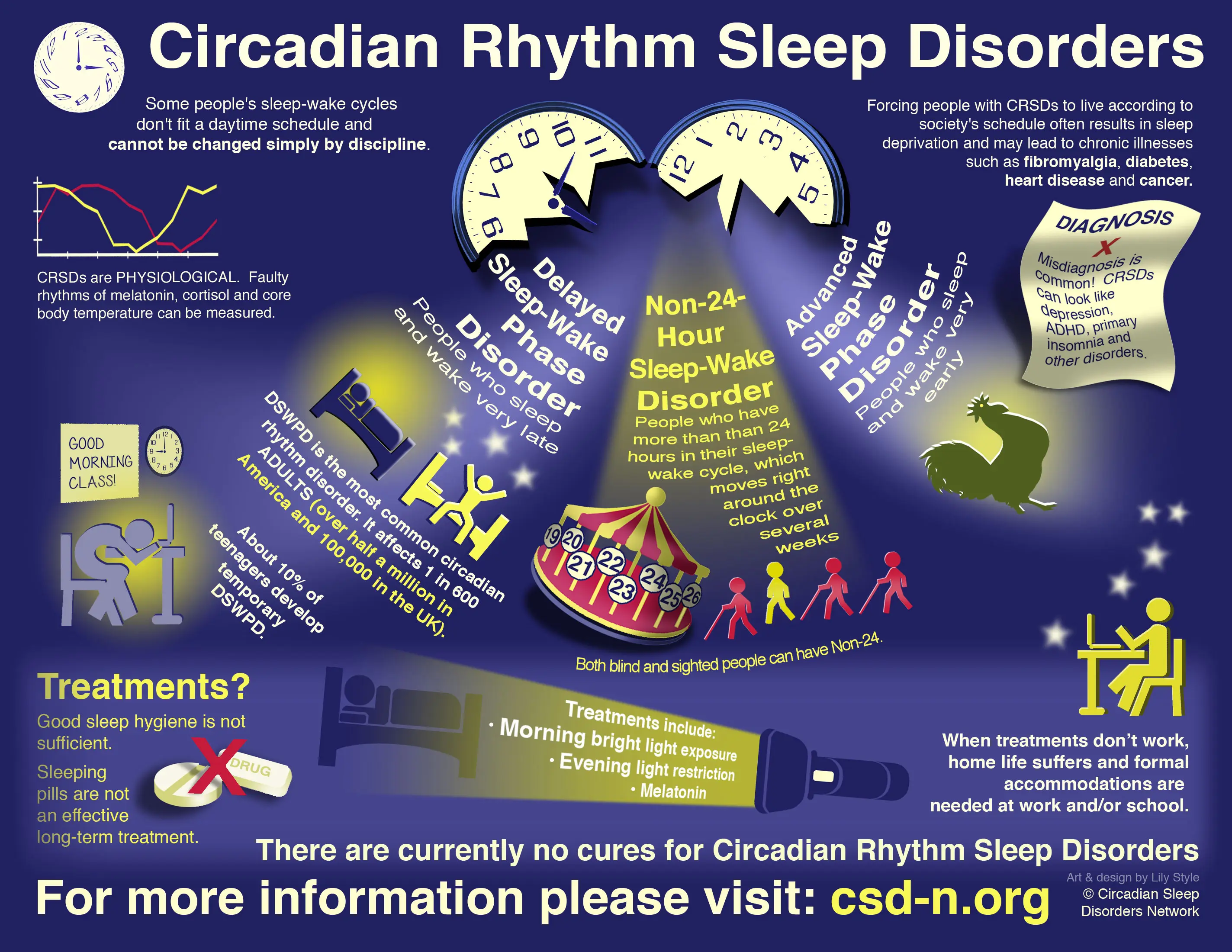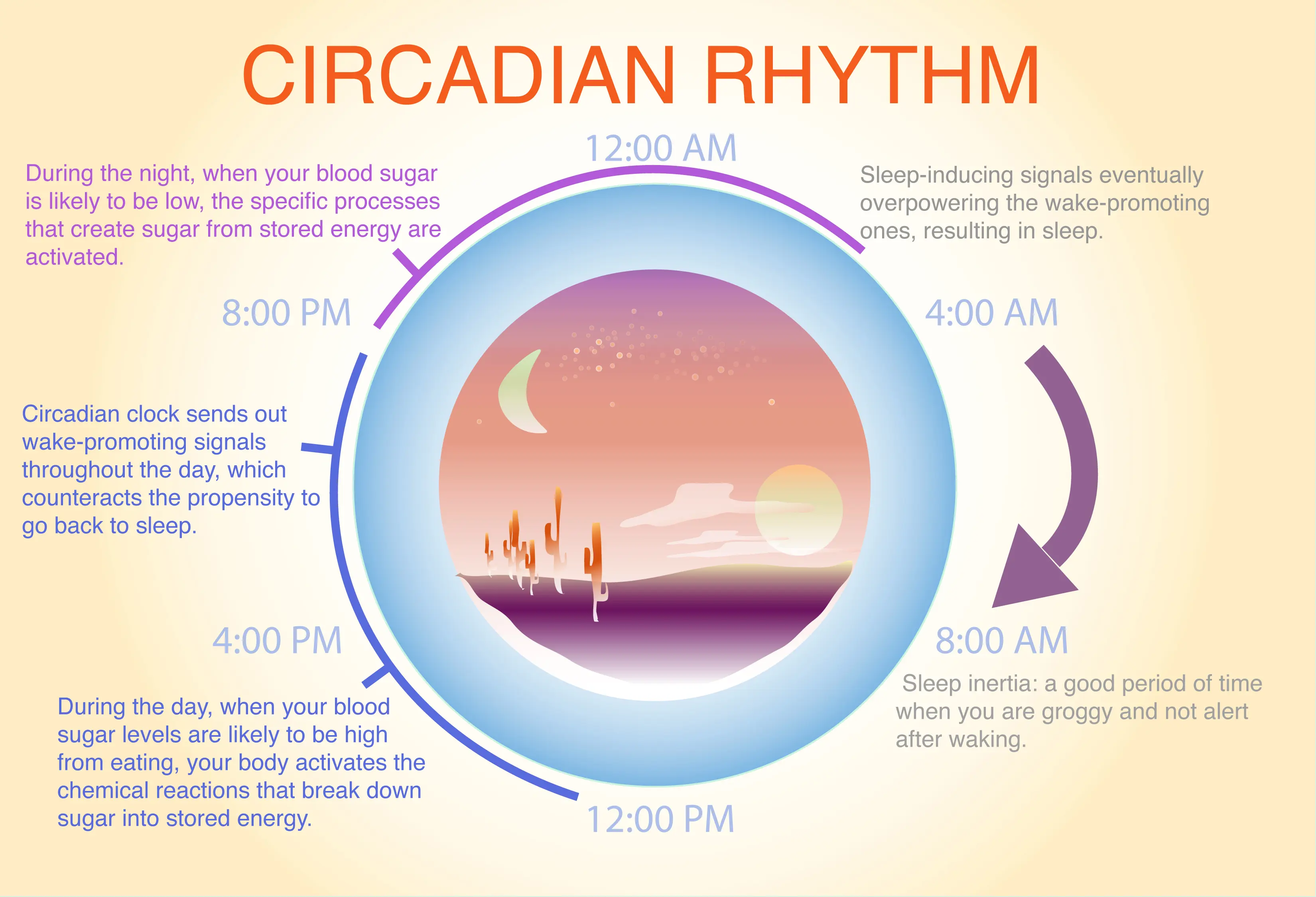Can Circadian Rhythm Sleep Disorder be Cured?
Sometimes
Management focuses on aligning sleep-wake patterns with the desired schedule; outcomes depend on the specific circadian rhythm disorder

What is Circadian Rhythm Sleep Disorder?
Circadian rhythm sleep disorders involve disruptions in the sleep-wake cycle due to a mismatch between the individual’s internal circadian rhythm and the external environment. Treatment may include light therapy, sleep hygiene practices, and, in some cases, medications.

Clinical Aspects

Characteristics
Disruption of the body’s natural circadian rhythm, leading to difficulties with sleep-wake cycles

Symptoms
Difficulty falling asleep or staying asleep at desired times, daytime sleepiness

Diagnosis
Clinical evaluation, sleep diary, sometimes actigraphy

Prognosis
Variable, depends on the specific circadian rhythm disorder

Complications
Impaired sleep quality, difficulties in daily functioning
Etiology and Treatment

Causes
Shift work, jet lag, irregular sleep schedules, underlying medical conditions

Treatments
Bright light therapy, melatonin supplements, sleep hygiene practices, addressing underlying causes

Prevention
Bright light therapy, melatonin supplements, sleep hygiene practices, addressing underlying causes
Public Health and Patient Perspectives

Epidemiology
Disruption of the normal sleep-wake cycle due to alterations in circadian rhythms

Patient Perspectives
Sleep hygiene practices, light therapy as recommended
Remember, the information provided here is intended for general knowledge purposes and may not apply to every individual case. To ensure you have accurate information relevant to your specific situation, always consult with a healthcare professional.
Share: